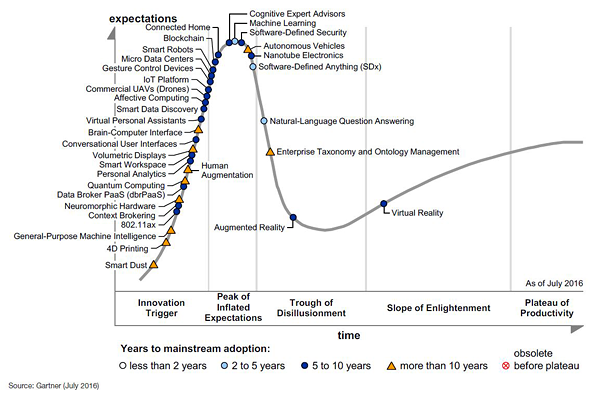 By John Halamka, MD
By John Halamka, MD
Twitter: @jhalamka
I’ve written several posts over the past two years about the need for innovation in healthcare IT – deploying self-developed apps, leveraging third party cloud hosted functions, and embracing the internet of things.
I’ve previously discussed establishing a center for innovation. In preparation, I’ve worked on innovative projects in industry accelerators, academic collaborations, and government sponsored hack-a-thons.
What has worked?
- I’ve learned that it is very important to make innovation a part of the day to day work inside an organization. Creating change externally and then trying to graft it internally results in a disconnect between research and operations. At BIDMC, we’ve created a meritocracy in which those have competitively illustrated out of the box thinking are given reserved time each week to focus on highly speculative areas of innovation. The project started as ExploreIT and is now being formalized as the Center for Information Technology Exploration in Health Care.
- It’s important to leverage commercial tools and services rather than trying to reinvent technologies that are becoming commodities. Agile innovation is the unique combination of existing ideas and is more about creating the plumbing between components to support a workflow than doing large amounts of raw coding.
- Just as with venture-funded startup companies, in a cohort of 10 projects, 6 will fail, 2 will limp along and 2 will be winners. We must create a safe environment where failure is permitted and exploration is its own reward. We’ll move projects from pilot to production only when they are proven to be ready for prime time.
- We’ll avoid being distracted by magical technologies at the peak of the hype curve (see below). Instead, we’ll choose the appropriate technologies that satisfy business owner requirements based on experience in industries outside of healthcare.

5. At times we’ll be early adopters and will be the first to test a new idea. At other times we’ll be a laggard, allocating our limited resources for the best functionality with appropriate safety and robustness. Also, will not deploy a technology until privacy protection is addressed with appropriate business associate agreements and security controls.
This ExploreIT powerpoint illustrates some of our projects in progress, created by internal staff supplemented with external products and experts selected by our operational teams.
We hope to commit more than $1 million to our innovative efforts this year through a combination of in kind efforts and philanthropy. Thus far, we seem to be achieving a perfect storm of alignment between business owners, internal developers, and technologies to leap frog existing solutions.
John D. Halamka, MD, MS, is Chief Information Officer of Beth Israel Deaconess Medical Center, Chairman of the New England Healthcare Exchange Network (NEHEN), Member of the HIT Standards Committee, a full Professor at Harvard Medical School, and a practicing Emergency Physician. This article was originally published in his blog Life as a Healthcare CIO and is reprinted here with permission.
